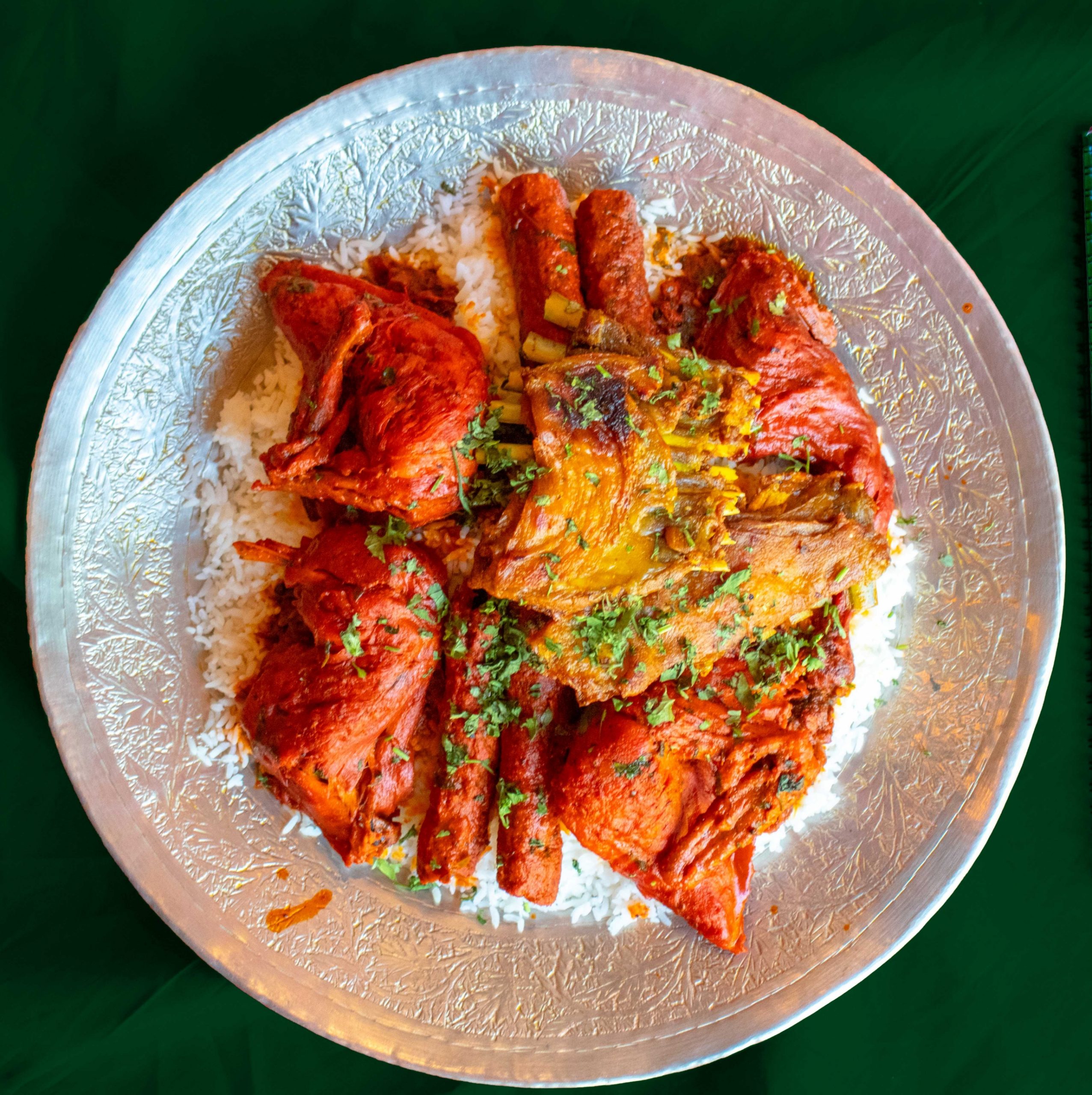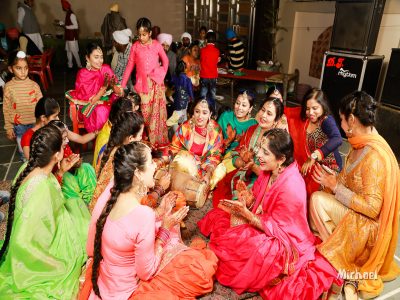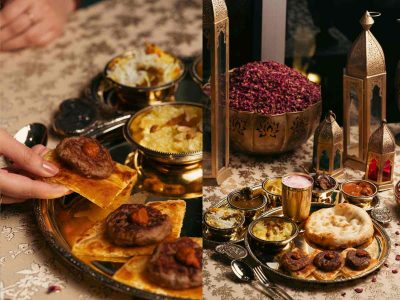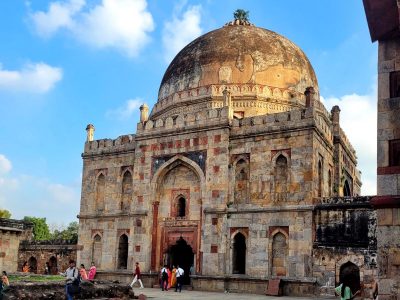In the bustling market at Delhi’s Lajpat Nagar, Kashmir’s largest food chain Parsa’s welcomes visitors with the soothing melodies of Kashmiri Sufi songs and the enticing aroma of wazwan, creating an atmosphere that resonates with the Valley’s heart.
Upon entering Parsa’s, customers are embraced by a warm reception and the aromatic notes of kehwa, a traditional Kashmiri tea.
At the helm of this gastronomic empire is Javid Parsa, hailing from a quaint village in north Kashmir’s Bandipora district. The inception of the ‘Parsa’ brand dates back to 2017 when Javid, driven by a new-found passion for the food industry, decided to embark on a culinary journey.
He was inspired during his tenure at Amazon’s Hyderabad facility, where he observed the burgeoning number of fast-food outlets.
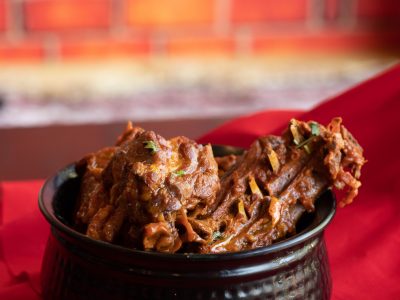
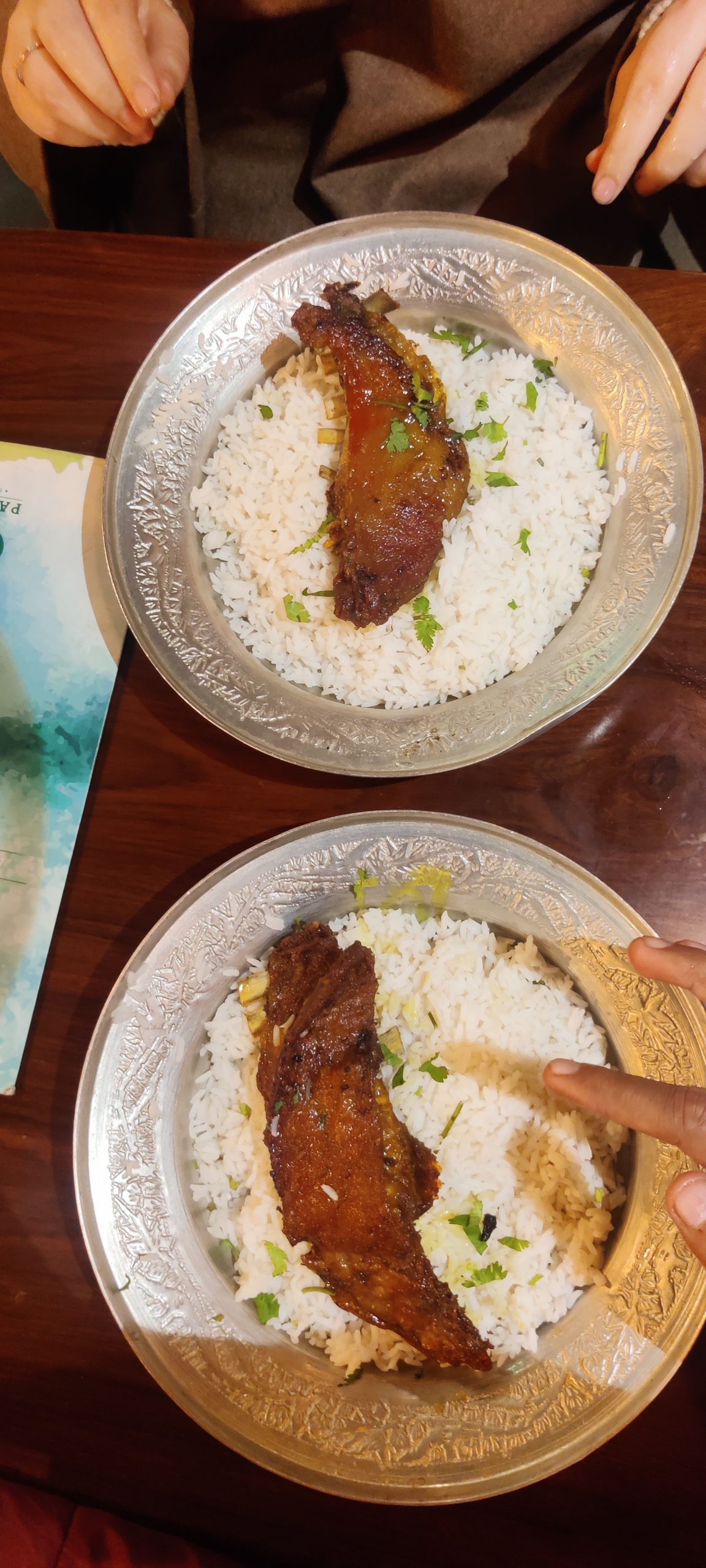
Javid has etched a unique mark in the food and beverage sector, garnering acclaim for his venture that now spans 36 eateries across India.
The 35-year-old has spearheaded Parsa’s to more than just a café as its culinary experience encapsulates the rich flavours of Kashmir.
From the receptionist to the waiters, the entire staff at Parsa’s is dedicated to creating a customer-friendly atmosphere, ensuring that every visitor experiences excellent service.
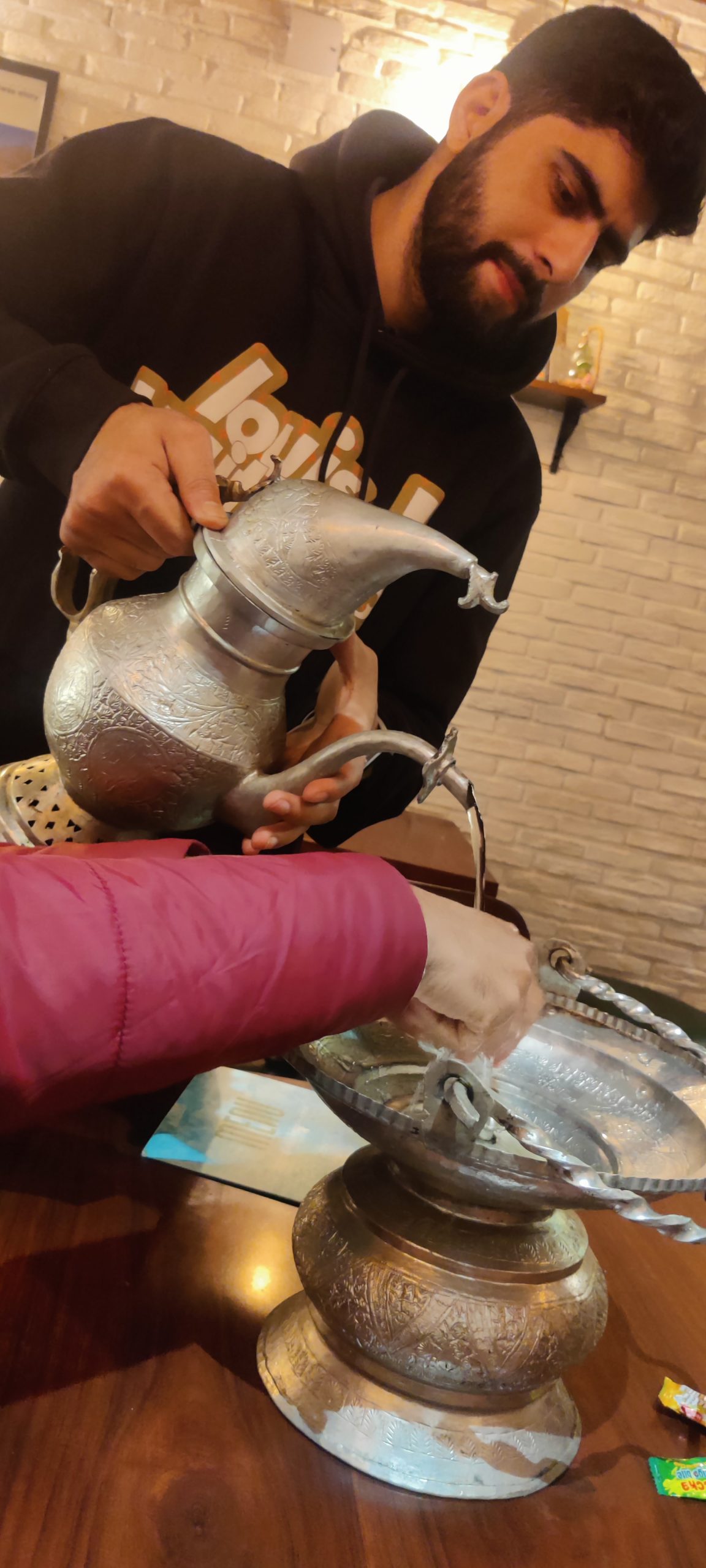
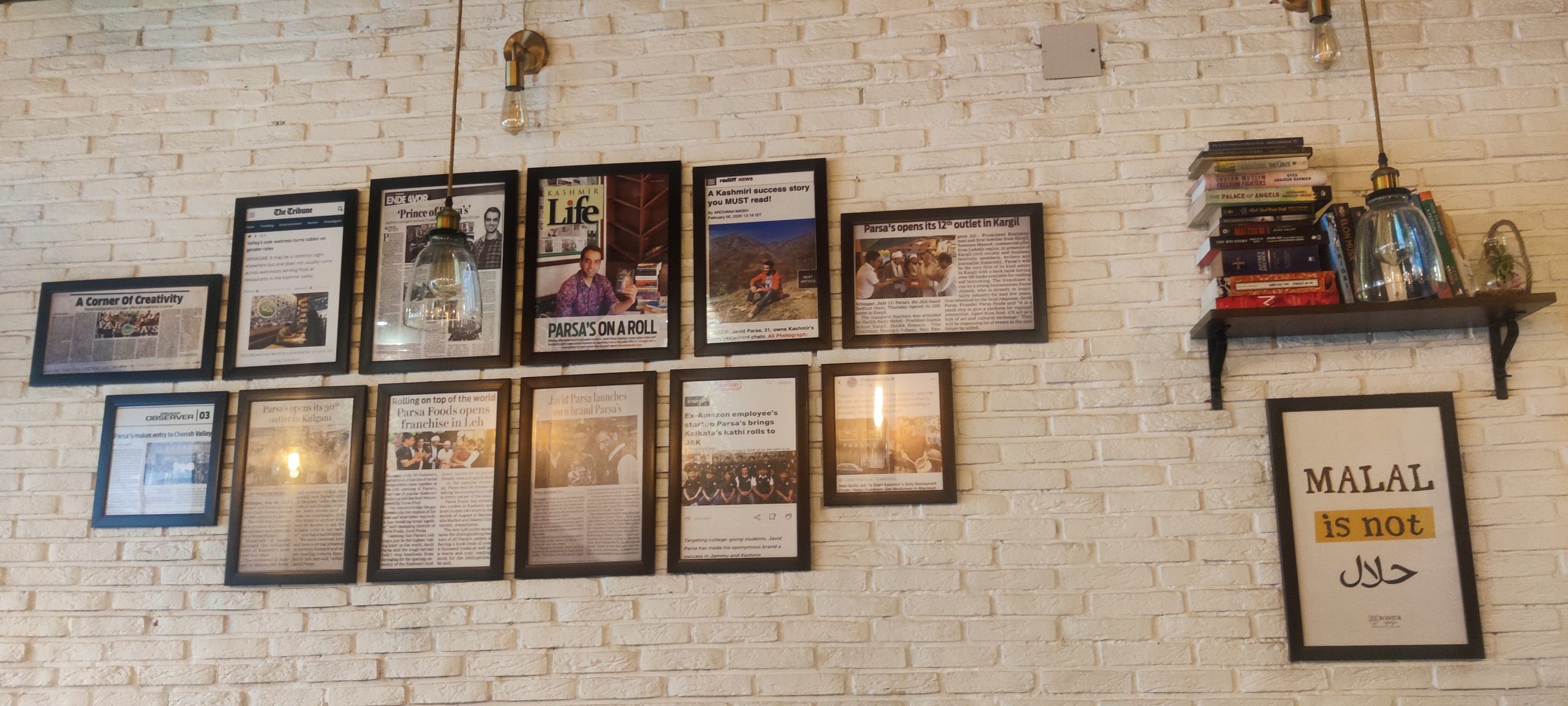
The warm reception contributes to making Parsa’s feel like a mini home for Kashmiris, right in the heart of Delhi.
The food is served in copper utensils with handmade copper cutlery created by Kashmiri artisans and hands are washed in Tash Naer (a Kashmiri tradition to wash your hands before and after meals). The attentive and friendly service adds to the overall dining experience, making patrons feel not just like customers, but guests in a welcoming space.
The commitment to hospitality is evident, and the ambience, coupled with the diverse menu, transports diners to the culinary heart of Kashmir.
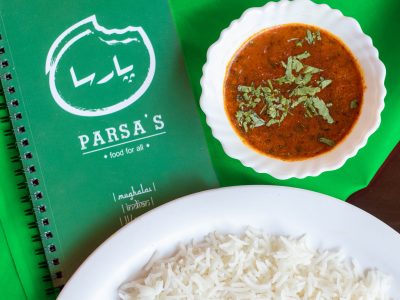
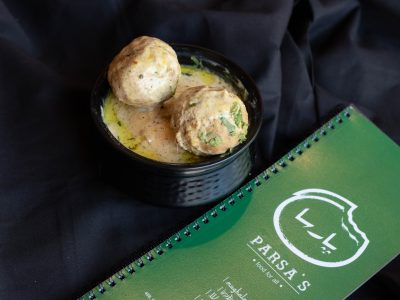
Just like its sister outlets, Parsa’s Delhi location also houses a delightful collection of books, generously donated by ardent readers for the enjoyment of other book lovers.
Javid, acting as a custodian of knowledge, continues to extend the brand’s philosophy beyond the culinary realm.
The Parsa Book Bank, initiated in 2015, remains an integral part of the brand. According to Parsa’s website, donors, numbering close to 500, are esteemed permanent members, granted the privilege to borrow from the diverse collection of nearly 10,000 books, spanning genres from art and politics to fiction, resistance, and biographies.
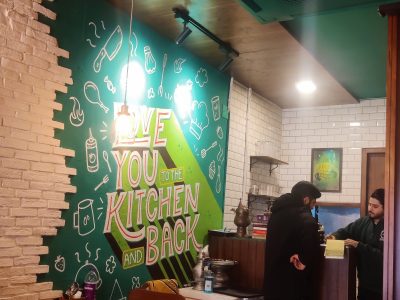
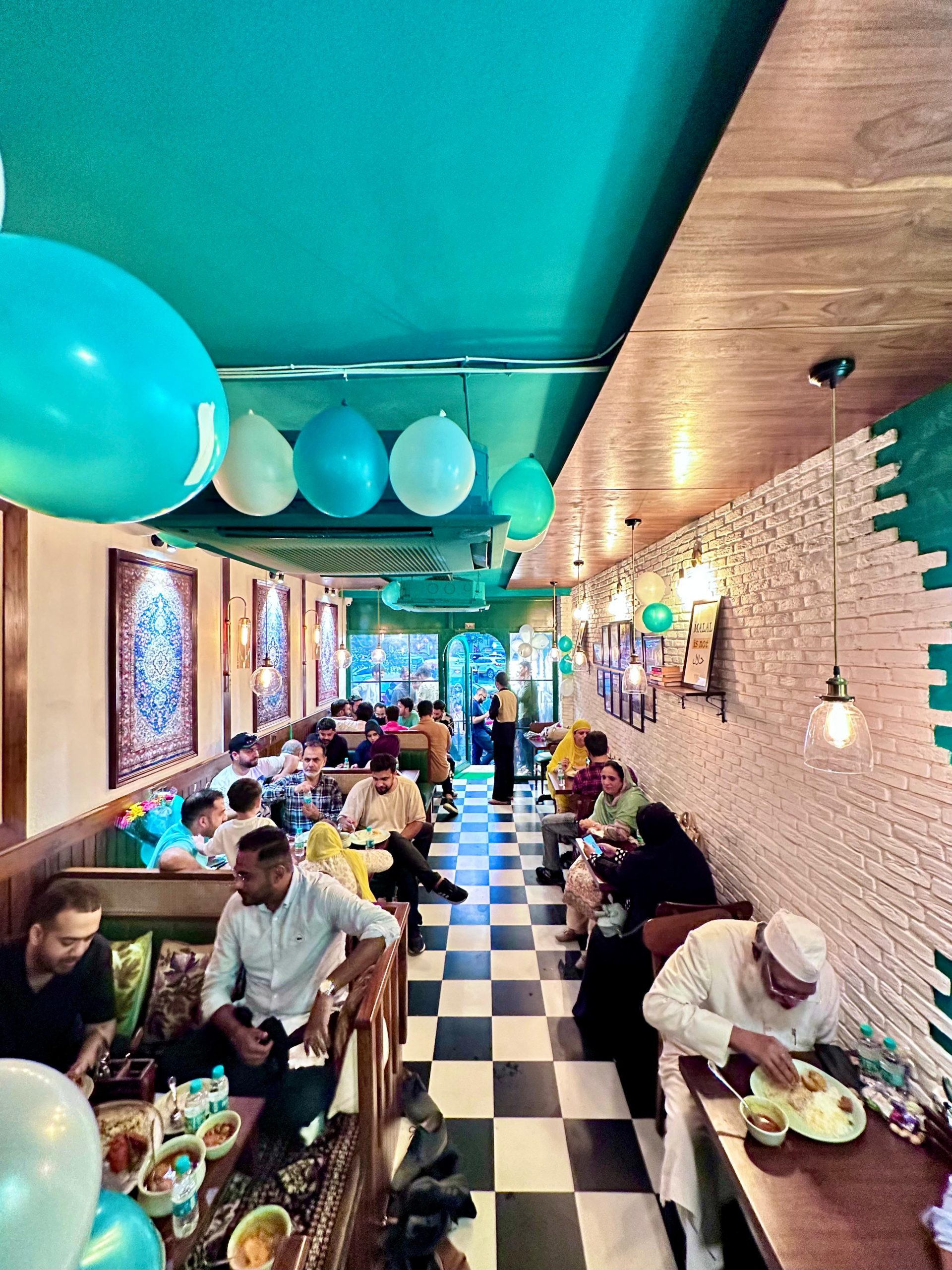
With approximately 1,000 regular readers and borrowers, Parsa Foods’ literary initiative has created a haven for literature enthusiasts, making each outlet not just a culinary destination but also a space where the joy of reading is as warmly embraced.
The menu features an extensive variety of dishes that showcase the rich and diverse flavours of Kashmiri cuisine.
Upon its opening in Srinagar, Parsa’s set out to curate a unique fusion inspired by the culinary traditions of Kashmir, Kolkata, and Hyderabad. However, as the venture expanded beyond the confines of the Kashmir Valley, queries surfaced questioning the establishment’s status as Kashmir’s premier food chain and the authenticity of its Kashmiri identity.
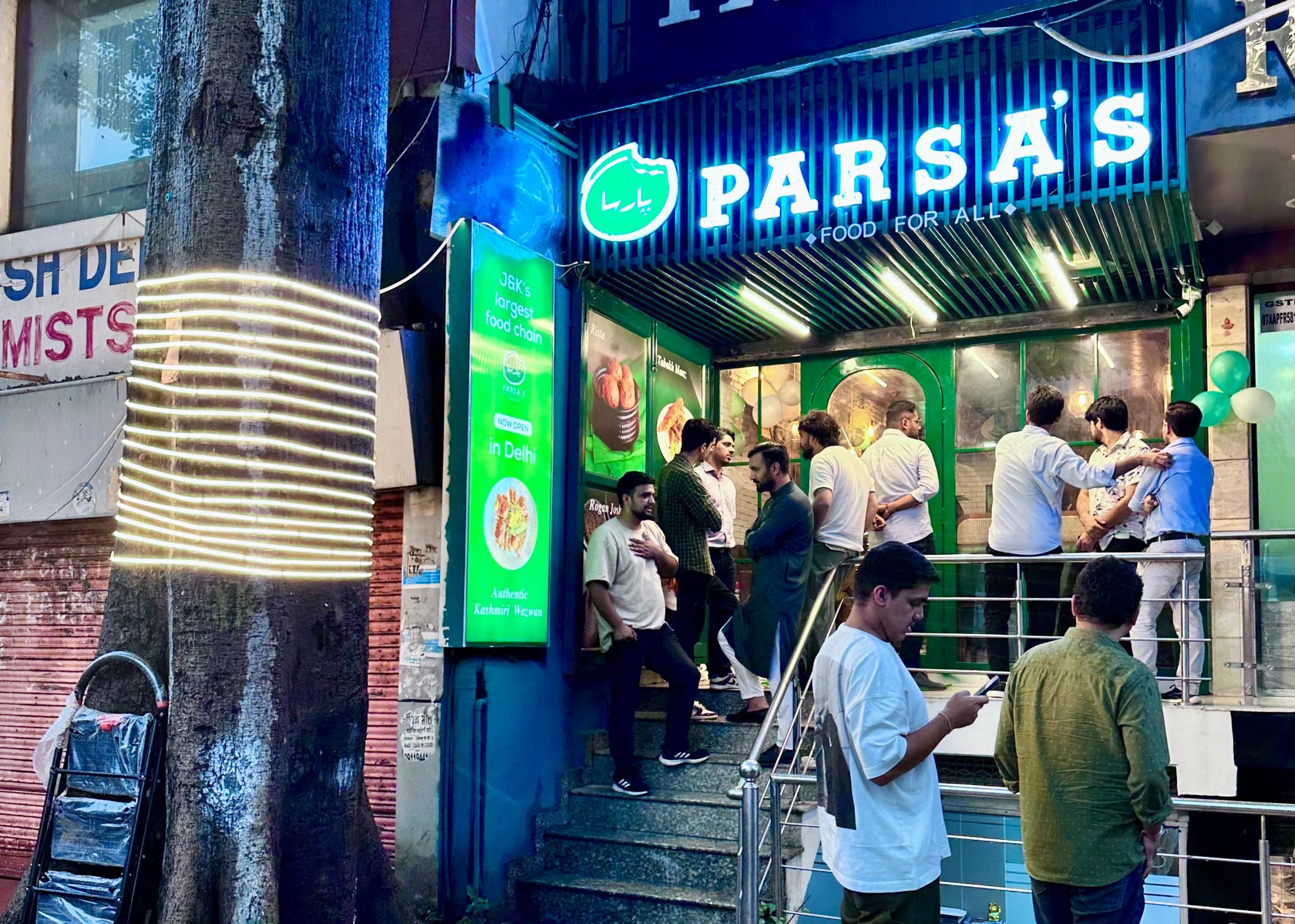

Consequently, the focus transitioned from rolls to the presentation of authentic Kashmiri wazwan. Anchored in this evolution was the deliberate crafting of the outlet’s ambience to intricately reflect the cultural tapestry and heritage of Kashmir, ensuring a true immersive experience for customers.
“The response of the people here in Delhi is beyond what we have expected. It is much more overwhelming this time. We made entry to Delhi this time with wazwan as the primary menu. When we stepped out of the valley anyone would ask if we are running Kashmir’s largest food chain, and what is Kashmiri about it. So, we had to move to serve authentic Kashmiri wazwan,” Javid said.
From harissa (the age-old traditional mutton recipe that is mostly available in winter) to Kashmiri wazwan, Parsa’s menu is a gastronomic delight that demonstrates the culinary diversity of the region. The offerings range from Tabak Maaz, Chicken Malai Tikka, Tandoori Chicken, Afghani Chicken, Kabab Kanti, Meethi Maaz, Paneer Tikka, Rogan Josh, Daniwal Korma, and more, presenting a flavourful journey through Kashmiri culinary traditions.
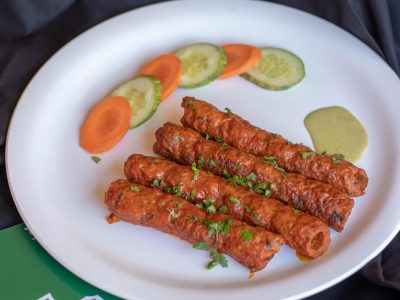
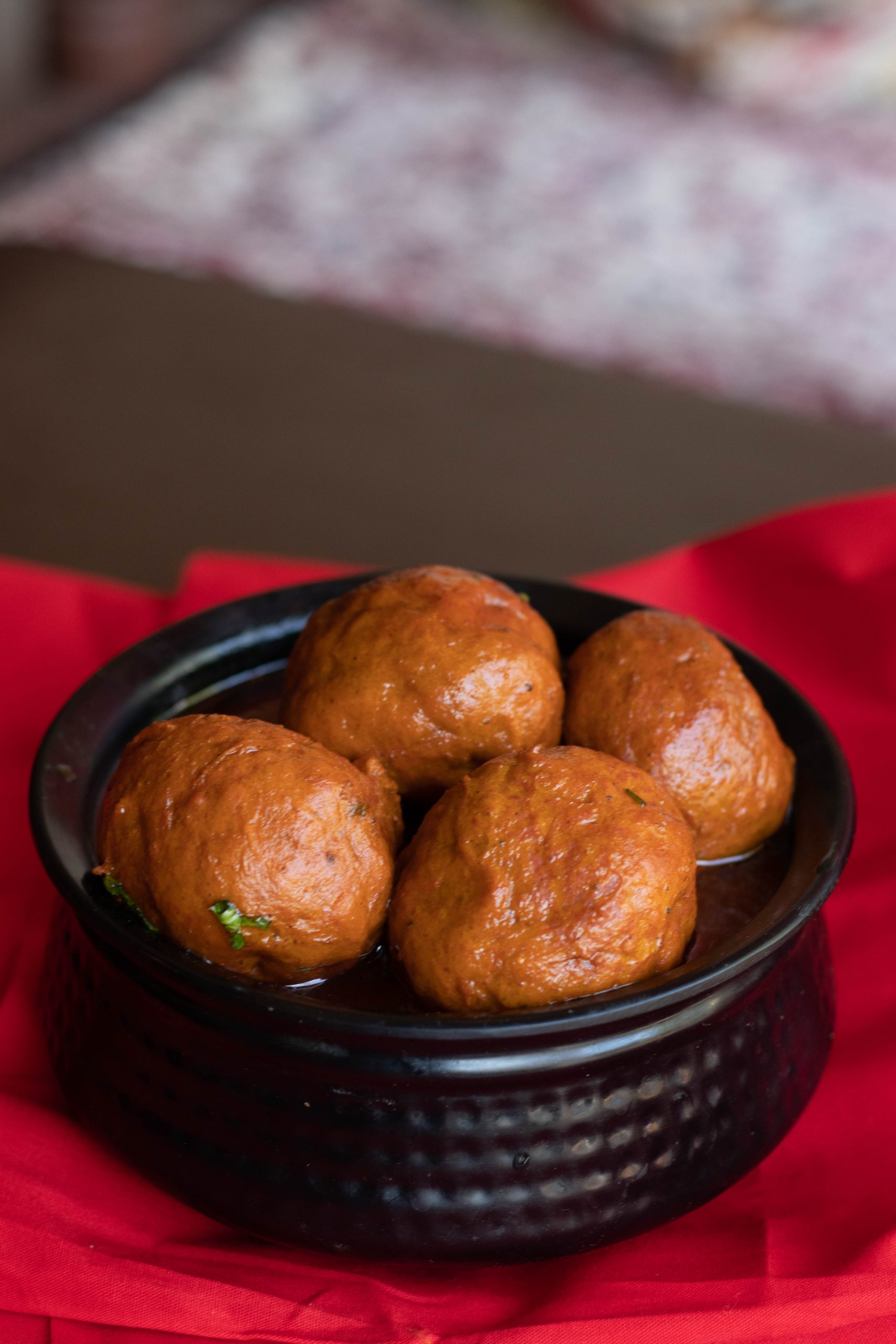
In addition to the enticing culinary offerings, Parsa’s unique ambience adds another layer to the dining experience. Most of the restaurant’s area is adorned with tables and chairs, but a distinct feature sets it apart—on one side of the outlet, a raised platform awaits patrons who wish to savour Kashmiri delicacies in the traditional style.
Here, the floor boasts Kashmir’s famous carpets, creating an ambience reminiscent of the region’s cultural richness. To partake in this elevated dining experience, guests are required to remove their footwear and adopt a seating style with crossed legs.
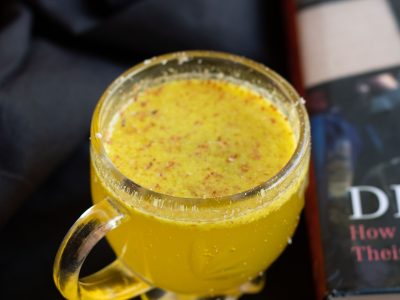
“Kashmiri wazwan is our speciality at this outlet. We have a tandoor, we have special breads, and we are planning to add Kathi rolls around the end of March. We have a very huge Kashmiri diaspora who have had a strong connection with Parsa’s rolls for very long. On and off we get orders for the rolls and we also want to cater to the student community based in Delhi by offering meals at affordable rate,” said Javid.
While discussing future plans for Parsa’s in Delhi, Javid Parsa articulated a grand vision to significantly expand the food chain across Delhi NCR.
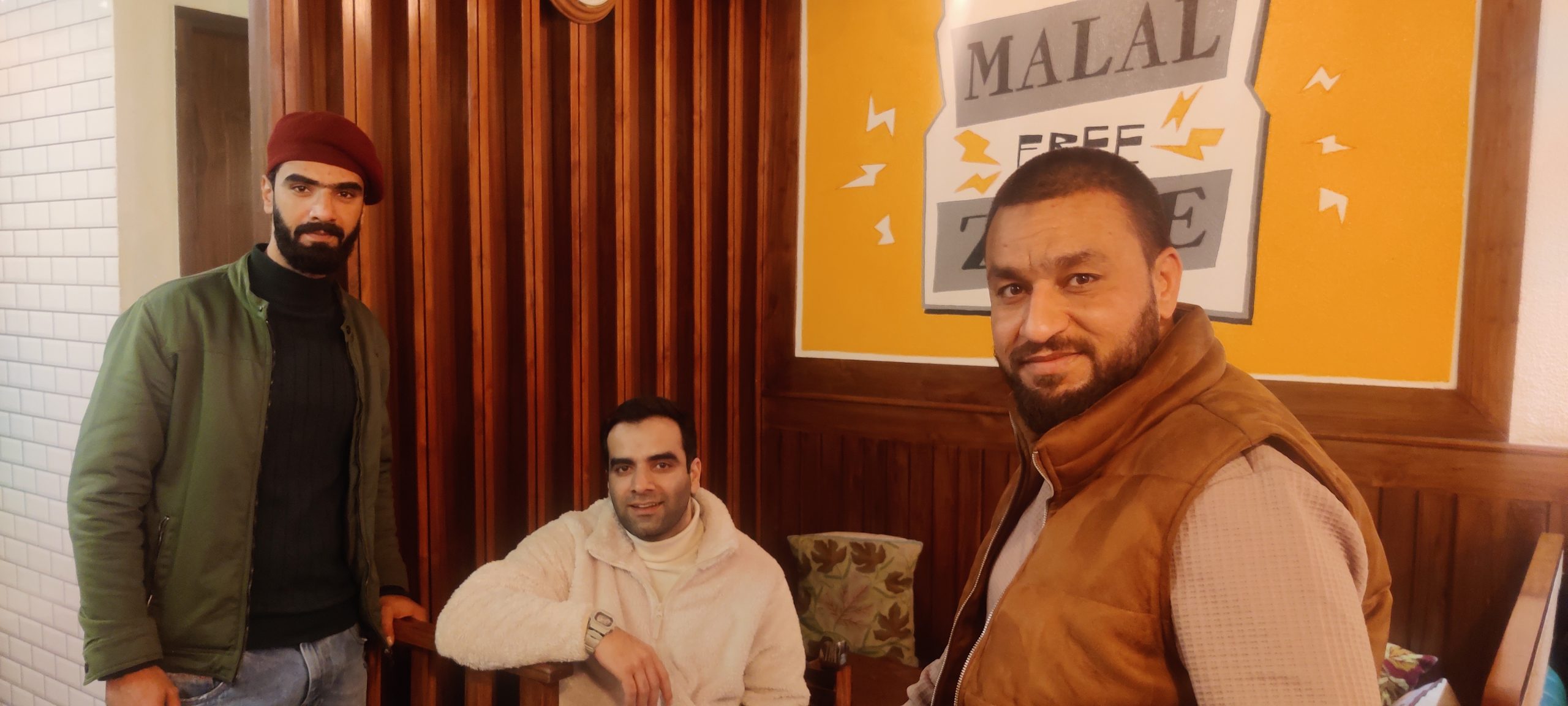
“We are currently seeking locations to establish outlets in Noida and Gurgaon. Additionally, we are exploring the concept of setting up small kiosk outlets in collaboration with our franchise partners across Delhi. These kiosks will serve as sales counters, enabling us to reduce infrastructural and logistical costs while broadening our brand presence. Considering Delhi’s expansive geographic reach, it is impractical to cover all corners of the city from a single unit. Our aim in the upcoming years is to establish a strong presence across the entire NCR,” he elaborated.
“Delhi, being a vast and densely populated market, presented an opportunity for us. With plans to expand Parsa’s to other parts of the city, our aim is to bring the rich flavours of Kashmiri wazwan to every corner. It’s not just about the food; it’s about creating an authentic experience for Kashmiri students and families in Delhi,” said Javid.
The Lajpat Nagar franchise is managed by two childhood friends, Farhan Waheed from HMT Srinagar and Farhan from Baghi Mehtab Srinagar, both MBA pass-outs from Jamia Hamdard.
“During my college days at Jamia Hamdard, the idea of serving authentic Kashmiri wazwan took root. We wanted to fill the gap for Kashmiri cuisine in a city that embraces diverse cultures and cuisines,” said Farhan Waheed, one of the franchise owners.
“In addition to wazwan, we introduced harissa at our Delhi outlet, and the response from non-Kashmiris has been remarkable. From early morning to late evening, our harissa is available for both dine-in and home orders. With our presence on Zomato, we ensure that the taste of Kashmir reaches every doorstep in Delhi NCR,” said Farhan.
“The aesthetics of our restaurant are a tribute to Kashmiri culture. The antique interiors and carpets, directly imported from Kashmir, create a charming and homely atmosphere. We want our customers not only to savour the flavours but also to feel the warmth of Kashmir within these walls,” he added.

